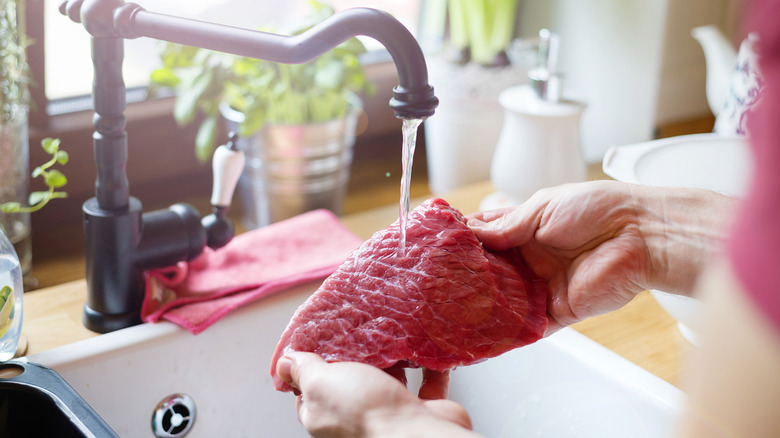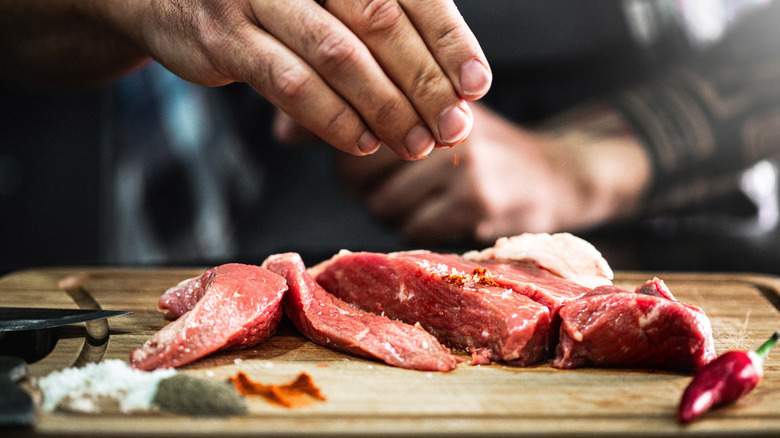The Reason You Need To Stop Rinsing Steak
A cooked steak is full of juicy, savory, meaty goodness, but a raw steak right out of the package? Not so much. The uncooked hunk of beef can appear wholly unappetizing at first, especially as meaty juices drip off of the wrapping, which may lead you to believe that you need to wash your steak before cooking it. While you'll want to keep that liquid off of your hands and counters, avoid rinsing off raw meat.
According to the U.S. Department of Agriculture, it's not advisable to wash raw beef before you cook it. The reasoning has to do with cross-contamination — any extra steps you add to your steak prep can spread its harmful bacteria to other surfaces, like towels, countertops, and your sink. According to USDA research, rinsing raw meat can increase the chances of cross-contamination, which may lead to foodborne illness. Back in the day (as in the early 1900s), it was much more common for people to slaughter their own cows, which made washing the meat a necessity. In today's world, beef is typically already sanitized before it makes its way into your kitchen, so there's no need to clean it yourself.
How to safely prep your steak
So, how can you prep steak without increasing your chances of contracting a foodborne illness? The first step is to make sure it's at room temperature before you begin cooking, but it's crucial to stick to food safety advice in this area too. The USDA advises against letting frozen steak defrost on the counter since doing so could expose it to temperatures where bacteria are likely to grow. Instead, thaw your meat overnight in the fridge or in a sealed bag submerged in cold water, changing out the water approximately every half hour to make sure it stays chilled. Technically, you can defrost your steak in the microwave safely as well, but we wouldn't recommend it for taste and texture reasons.
Once your beef has come to the right temperature, all you really need to do is pat it dry with a paper towel to ensure you get a crispy outer layer. If you need to cut your hunk of meat, do so on a cutting board, immediately wash your hands afterward, and make sure to thoroughly clean your dishes. If you really want to be careful here, work with a nonporous board made from plastic or marble. It takes a little extra effort to stay safe in the kitchen, but it will be worth it when you avoid food poisoning down the road.

